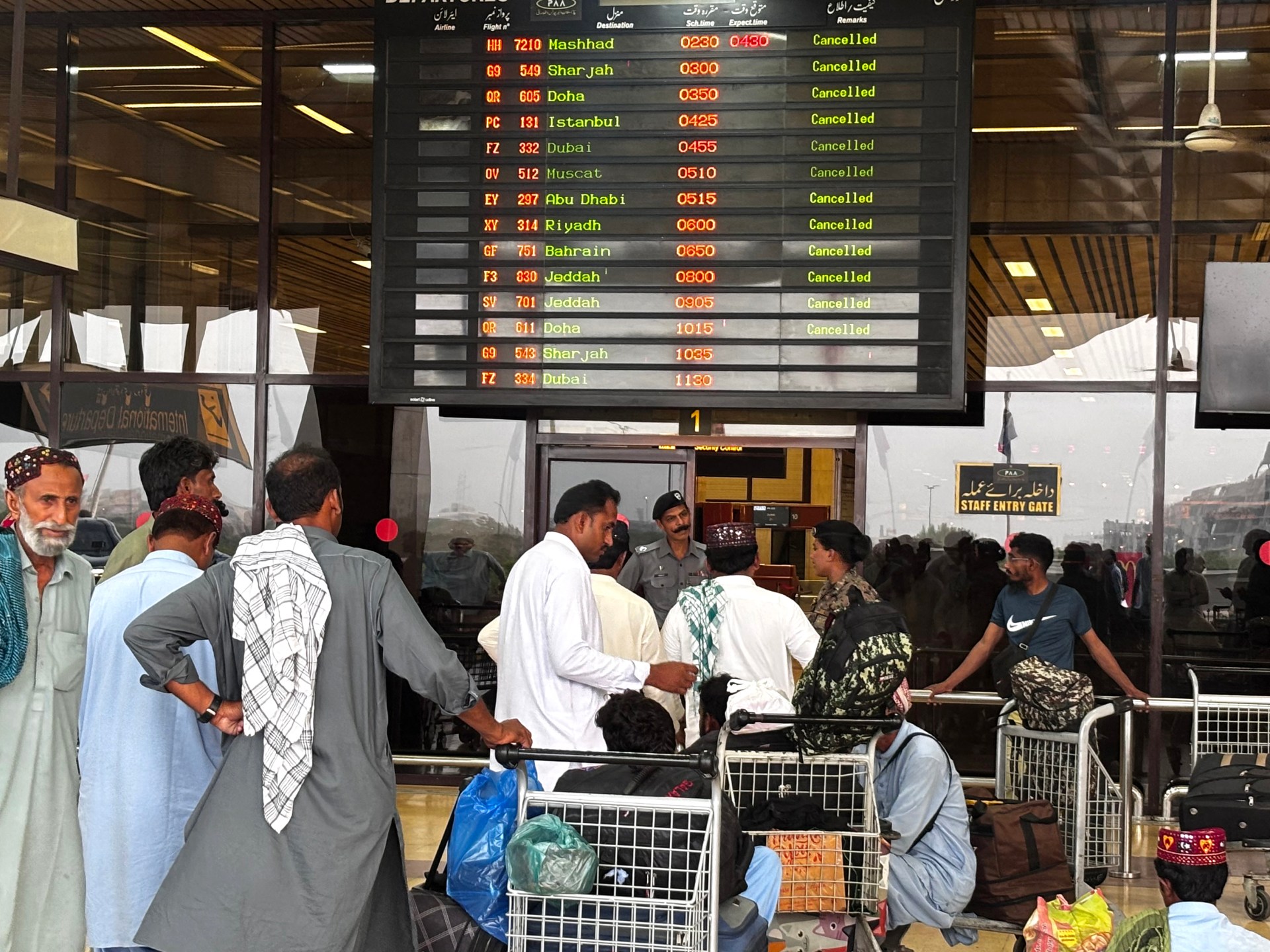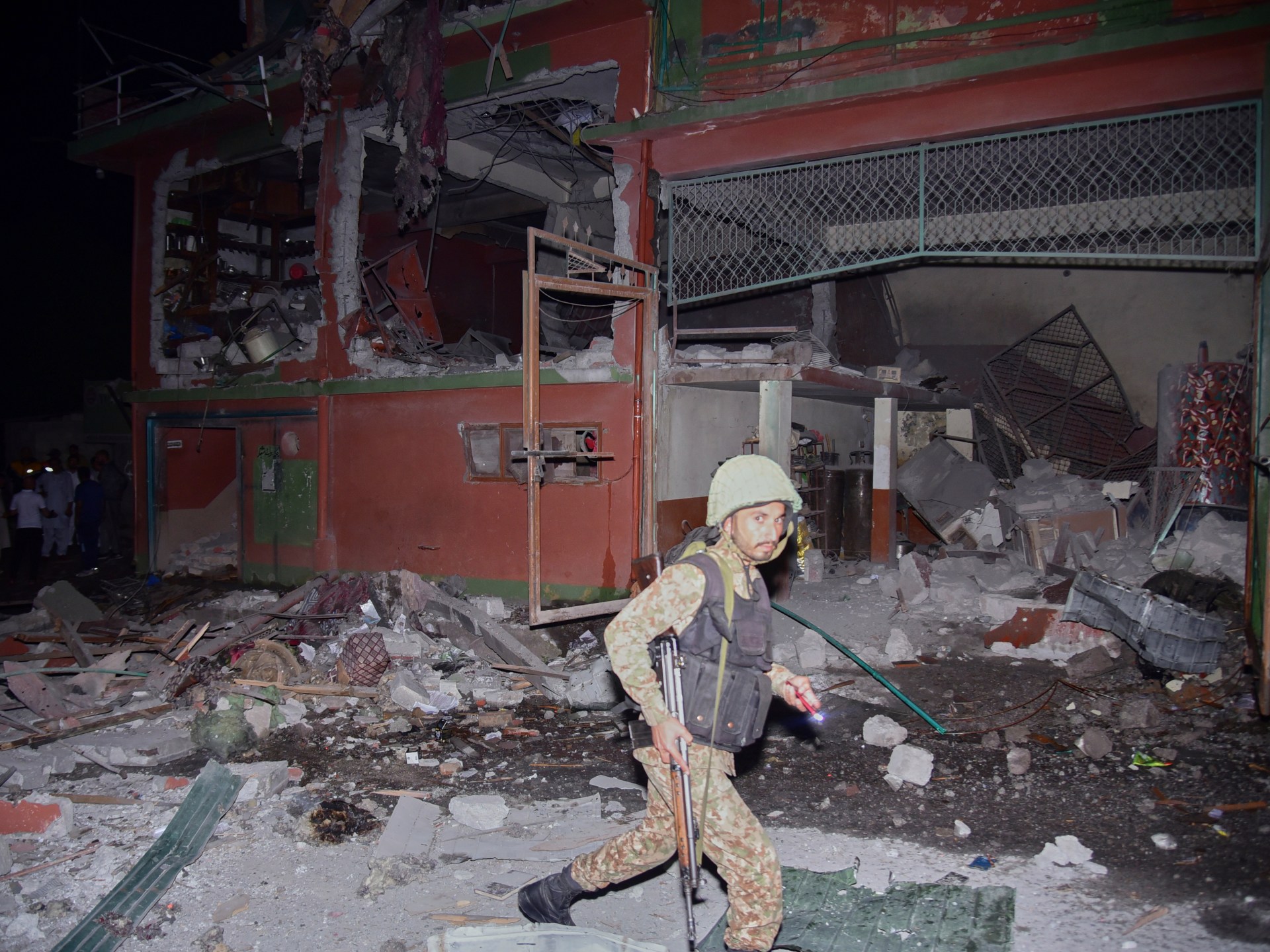New Delhi, India – In the first hours of Wednesday, Indian armed forces said they struck nine locations in Pakistan and Pakistan-administered Kashmir, where residents woke up to loud explosions, as the nuclear-armed rivals edged to the precipice of a full-blown military conflict.
New Delhi said its missiles precisely targeted “terrorist infrastructure” across the border while demonstrating “considerable restraint”. The Indian Army, in a statement, said the attack was “non-escalatory in nature” and pointed out that Pakistani military facilities were deliberately not targeted.
Yet a fuming Islamabad claimed that Indian attacks in six Pakistani cities killed at least 8 civilians, including two children. Pakistani ministers also claimed that the country’s air force had shot down several Indian military jets.
India’s missile attacks – called Operation Sindoor – were the country’s response to the deadly April 22 attack in Indian-administered-Kashmir’s Pahalgam, in which 26 people were killed. India blamed Pakistan for that attack, while Islamabad denied it had any role. Since then, Indian armed forces have combed the forests near Pahalgam, arrested more than 2,000 people and raided homes in an unsuccessful manhunt for the gunmen who fled after shooting tourists dead.
The May 7 attacks on Pakistan and Pakistan-administered Kashmir offer Indian Prime Minister Narendra Modi a chance to bolster his strongman image at home, analysts told Al Jazeera. But the Indian government’s emphasis on signalling “restraint” points to an attempt to balance that domestic message with a different narrative for the rest of the world.
Amid it all stands an undisputed fact, say analysts: India’s attacks have raised the risks of the region spiralling into a wider conflict.
‘Concerning development’
The Indian attacks were the most expansive since the neighbours last fought a full-fledged war in 1971 – a time when neither had nuclear weapons at their disposal as they do now.
Of the six places that Indian missiles struck, two are cities – Muzaffarabad and Kotli – in Pakistan-administered Kashmir. The region of Kashmir – one of the world’s most militarised zones – is claimed in full, and ruled in parts, by India and Pakistan, who have fought three wars over it.
But the other four targets that India struck are in Punjab -Bahawalpur, Muridke, Sialkot and Shakar Garh. Among them, Bahawalpur falls in southern Punjab province, facing the Thar desert, while Muridke is just next to Lahore, Pakistan’s second-largest city, with a population of 14 million.
The Indian military has not hit Punjab, Pakistan’s economic heartland that is also home to 60 percent of the country’s population, since 1971.
Indian air attacks since then have mostly targeted remote parts of Pakistan or Pakistan-administered Kashmir. Six years ago, Indian jets fired missiles at Balakot in Pakistan’s Khyber Pakhtunkhwa province, after a suicide bomber killed at least 40 Indian paramilitary soldiers in Indian-administered Kashmir.
These May 7 attacks are different. Lahore, next to Muridke, is close to the Indian border and is Pakistan’s second-most populous city, pointed out Sumantra Bose, an Indian political scientist whose work focuses on the intersection of nationalism and conflict in South Asia. Bahawalpur, in southern Punjab, is also a key city.
The Indian government claims that it strategically hit only “terror infrastructure”. And in a post on X, the Indian army said, “Justice is served.”
But Bose said the attacks were “a very concerning development”.
“Surgically targeted precision strikes do not change the fact that there have been these large explosions in major Pakistani population centres,” said Bose. “This is proper Pakistan, not Pakistan-administered-Kashmir [claimed by India].”
‘Likely domestic dividends’ for Modi
Two days after the Pahalgam attack, Modi said, in an address at an election rally in the poll-bound state of Bihar, that his government would “identify, trace, and punish every terrorist and their backers”, promising to pursue them “to the ends of the Earth”.
Following the attack, India suspended its participation in the Indus Waters Treaty (IWT) that Pakistan counts on for its water security. Islamabad has threatened to walk out of past peace deals. Both nations have also expelled each other’s diplomats, military attaches and hundreds of civilians.
But there has been growing domestic pressure on the Modi government, said political analysts, to attack Pakistan after the Pahalgam attack.
“There was a high level of pressure on Modi to respond with muscle,” said Michael Kugelman, director of the South Asia Institute at the Wilson Center in Washington, DC. “It would have been unfathomable for India’s government not to respond militarily, given Modi’s self-projection as an administrator who is strong, confident, decisive, determined to hit back hard against terrorism.”
Rasheed Kidwai, a political analyst in New Delhi, said the Pahalgam attack had “emotionally” driven a desire in the Indian public for retribution against the attackers and those seen as their enablers. And Modi, with his image as someone who delivers on national security, was catering to those sentiments. “India is retaliating in a precise manner,” Kidwai said.
In many ways, the May 7 Indian missile attacks were in keeping with the script New Delhi had outlined since the April 22 killings in Pahalgam, said Praveen Donthi, a senior analyst at the International Crisis Group.
Like Kugelman and Kidwai, Donthi referred to the image that the Modi government has created for itself domestically. “This moment aligns with India’s self-projection as a strong security state with zero tolerance for terrorism, primarily directed against Pakistan, and Modi’s strongman persona. It was a self-created litmus test that the Indian government needed to ace,” he told Al Jazeera. “There are likely domestic dividends for it.”
But, Donthi warned, the Indian attack on Pakistan also “portends future risks”.
Kugelman agreed, describing the Wednesday missile attacks as “the most intense levels of Indian military actions we’ve seen in Pakistan for quite a few years now”.
What’s next?
Back in Pakistan, as officials pledge retaliation against what they call India’s “act of war”, Kugelman said the situation suits Islamabad’s military leadership, too.
The attacks “will actually bolster Pakistan’s current regime because the military leadership can use these attacks to rally the public around the military leadership,” he said. “The military has tended to derive its legitimacy from this idea that it needs to protect the country from the threat posed by India. We could see a rally around the flag effect [in Pakistan].”
Since the Indian attack, both armies have traded heavy artillery and gunfire across the de facto border in disputed Kashmir. Currently, Kugelman said, there is “a pretty strong possibility of escalation, given that both countries have nuclear weapons”.
“The more hostilities that are used through conventional military force under a nuclear umbrella, the higher the risk of nuclear escalation.






